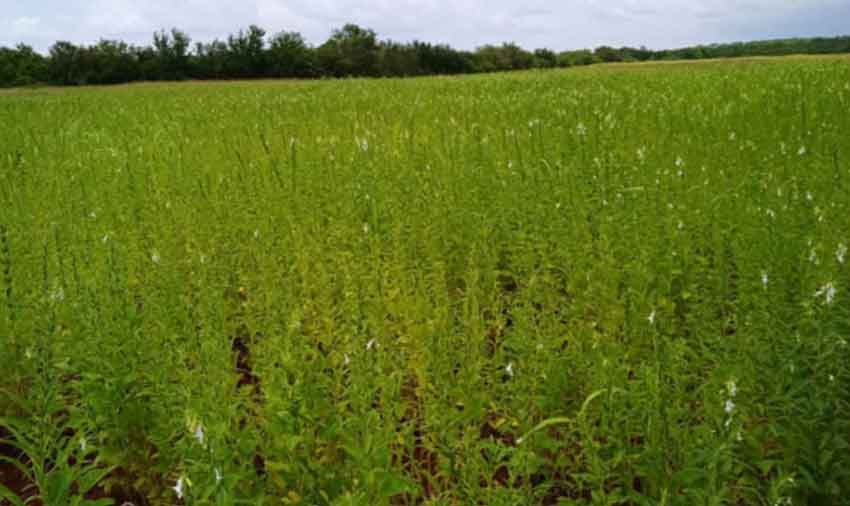
Between 2024 and 2026, a project is being developed in the province of Las Tunas for the production of oilseed plants, as an important complement to consolidating food sovereignty and food and nutritional security.
Las Tunas, Cuba.- Sponsored by the University of Las Tunas and funded by the Ministry of Science, Technology, and Environment, the program evaluates sunflower, sesame, soybean, and corn cultivars, although the first two are more useful for oil production.
 According to Raquel Ruz Reyes, PhD in Agricultural Sciences, professor and researcher at the Center for Agricultural Development Studies at the local university, the goal is to get that fat at a low cost and use it mainly for people's nutrition.
According to Raquel Ruz Reyes, PhD in Agricultural Sciences, professor and researcher at the Center for Agricultural Development Studies at the local university, the goal is to get that fat at a low cost and use it mainly for people's nutrition.
"We also intend for the by-product to be used in animal feed. That is why we are working in the primary centers of diversity in each of the municipalities involved, which are Manatí, Puerto Padre, Jesús Menéndez, Majibacoa, and Las Tunas.
"In these territories, we chose a primary diversity farm, where the seed will be multiplied to promote these crops in new areas so that by the end of the year, there will be more farmers actively participating in the project.
“Hopefully, we will incorporate many more, so that we can solve the situation with oil, which is so expensive. So, I think it is an extremely important solution, which would give us many economic and social results.”
The expert said that training activities are currently being developed on cultivation technology, its characteristics, how it is harvested, and other specifics. The plan is then to join an international project that will provide the necessary technology.
"Of course, in conjunction with this, we want to promote the production of eggs and pork by establishing dark-coated pig and laying hen farms that would be fed with the cake resulting from oil extraction.
“If we put 100 chickens on each of these farms, the program's goal of consolidating food sovereignty will be achieved. And we could supply nursing homes, maternity homes, schools, and other places that serve vulnerable populations.”

AGRICULTURE AND AZCUBA ARE ALSO IN ACTION
 According to specialists, one hectare planted with sesame can generate up to 400 liters of oil when processed, and the amount is greater if extracted from sunflower seeds. Because they are very efficient, their cultivation is gradually increasing in the territory of Las Tunas.
According to specialists, one hectare planted with sesame can generate up to 400 liters of oil when processed, and the amount is greater if extracted from sunflower seeds. Because they are very efficient, their cultivation is gradually increasing in the territory of Las Tunas.
A few days ago, the Ministry of Agriculture (Minag in Spanish) indicated that it would prioritize the cultivation of certain oilseed crops in entities in the sector and those belonging to the Azcuba sugar group, for which a strategy to multiply four species is already in place.
According to Luis Oro Torres, head of the Miscellaneous Crops Department at the MINAG delegation, between the two agencies, they will plant sesame (668.8 ha), soybeans (35.5), peanuts (100), and sunflowers (63).
There is already experience with these crops in the province, such as the Diego Felipe cooperative production unit in Puerto Padre, which has the appropriate equipment for the process. Now this new task must be promoted to alleviate the current circumstances and contribute to feeding the people.





